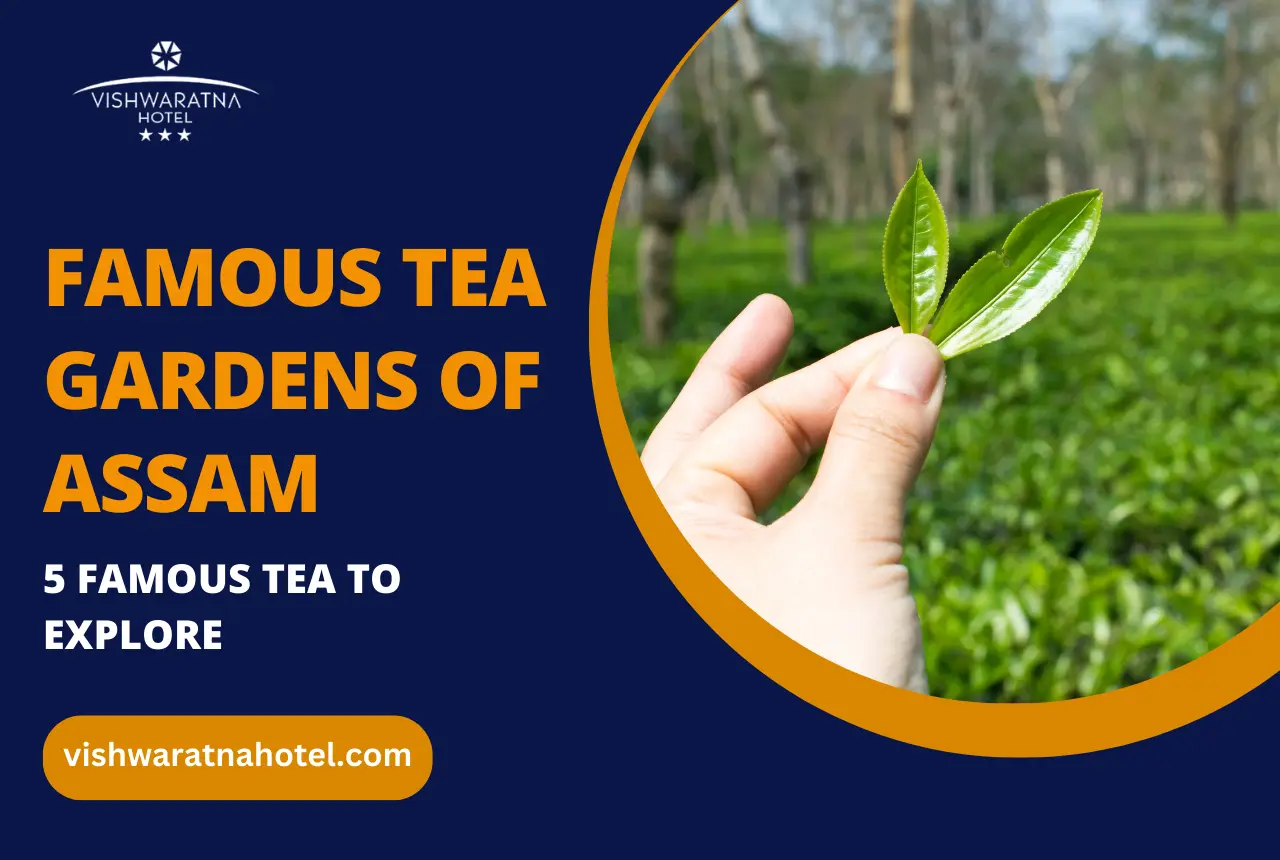When you think of Assam, what comes to mind? Perhaps the vast stretches of greenery, the serene Brahmaputra River, or its rich cultural heritage.
However much one tries to talk about all of these aspects, what strikes the eye most, though, is the iconic tea gardens of Assam. After all, Assam is one of the prominent regions globally for tea production, covering over half of India’s total tea production. Tea cultivation from the British Raj to today has played a very important role in Assam’s culture and economy.
It’s not only for tea production but also an internationally recognized destination for nature beauties and cultural richness, and the legacy of the Assam tea industry. It goes without saying that if you happen to be either a tea enthusiast or someone who appreciates mother nature, then Assam tea estates are sure to feature in your bucket list. Well, let’s dive deep into seven of the most famous tea gardens in Assam and see what breathtaking experience they have in store for you.
Exploring the Top Tea Gardens of Assam
Assam’s tea estates are not only the production of some of the world’s finest teas, but to a great extent, it is part of the state’s culture and contributes in a major way to its economic lifestyle. Perhaps the most astounding fact, however, is that each one of them has its own story: some are family-run businesses that have passed through generations while others are humongous century-old tea estates, which place Assam on the global tea map.
Now, let’s dig a bit deeper into the seven gardens one must absolutely visit while in Assam.
7 Famous Tea Gardens of Assam
Monabarie Tea Estate
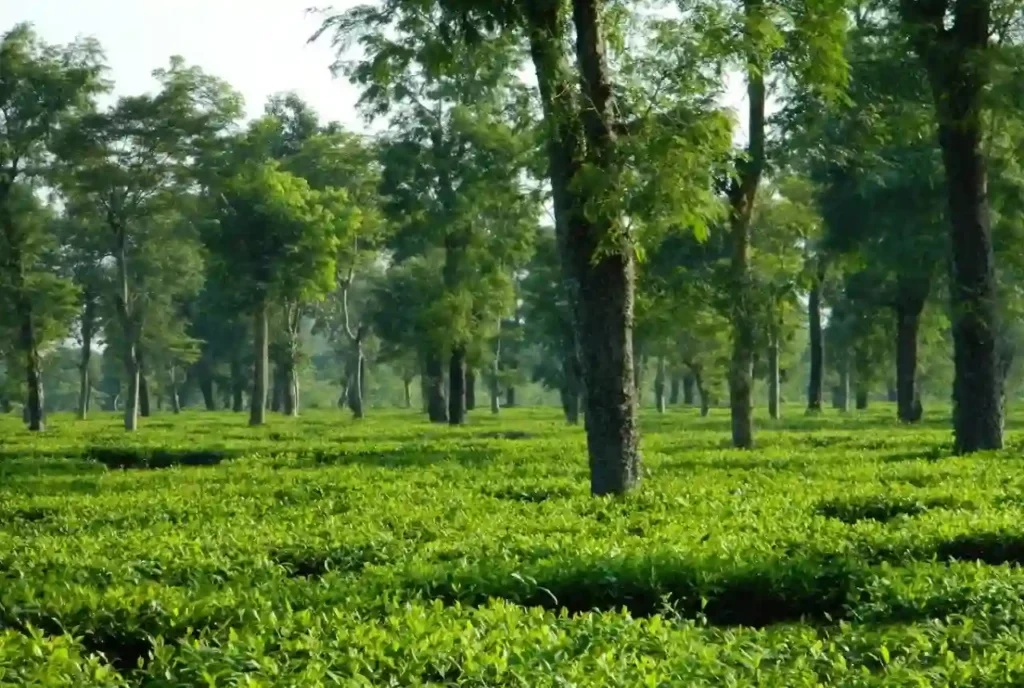
Did you know the fact that Monabarie Tea Estate is the largest tea garden in Asia? Spread over 1367 hectares, Monabarie is proof of the supremacy of Assam in the tea business. This big estate contributes reddish bright tea well-known for its bold flavor and heavy aroma.
Visits to Monabarie are not merely for the scapes of its vast green expanse but also to go through their over a century’s history. Monabarie has long been inextricably linked to Assam tea, and travelers can get a glimpse into the grandeur of Assam’s tea heritage. An excursion here will give one some resemblance of beauty along with a taste of the estate’s contribution to Assam’s economy cannot be neglected.
Halmari Tea Estate
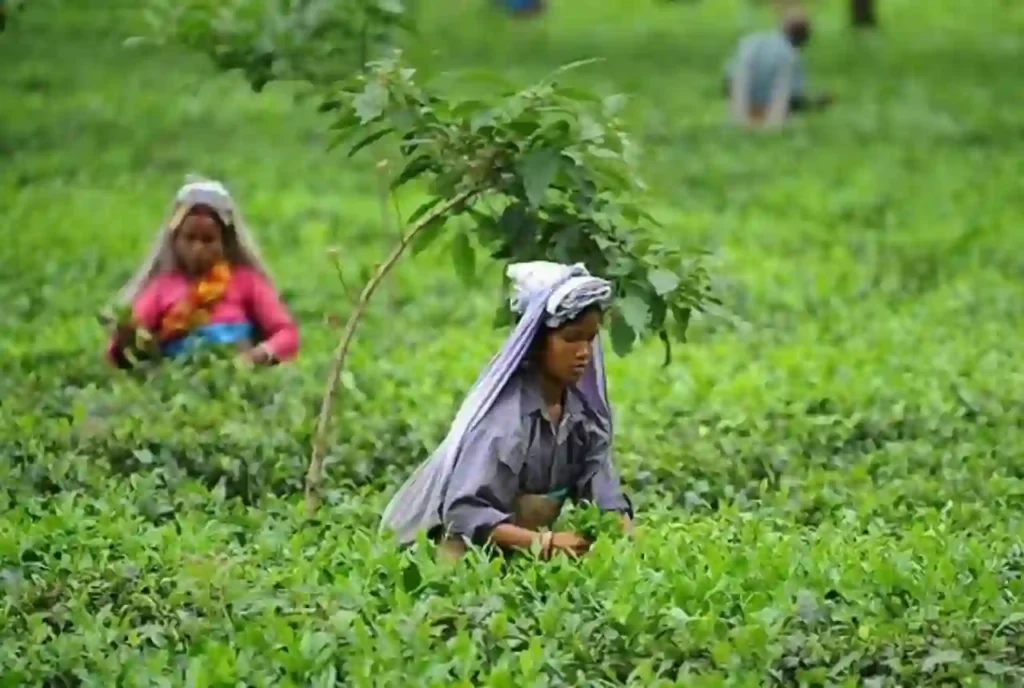
If there is one name that rings in one’s mind for premium quality, it is Halmari Tea Estate. In Dibrugarh, Halmari is part of the best Assam tea producers and is famous for high-quality goods. For over 100 years, this estate has been producing world-class black teas, ranking among the top tea gardens in Assam. The rich malty teas produced in this estate are in demand among luxury hotels and connoisseurs of teas.
When you visit Halmari, you will not only taste premium teas but also know about the innovative methods of tea cultivation they have introduced. Be it the Assam Golden Tips from them or a cup of their malty CTC tea, a visit to Halmari is sure to delight with the sublime experience of tea tasting.
Mangalam Tea Garden
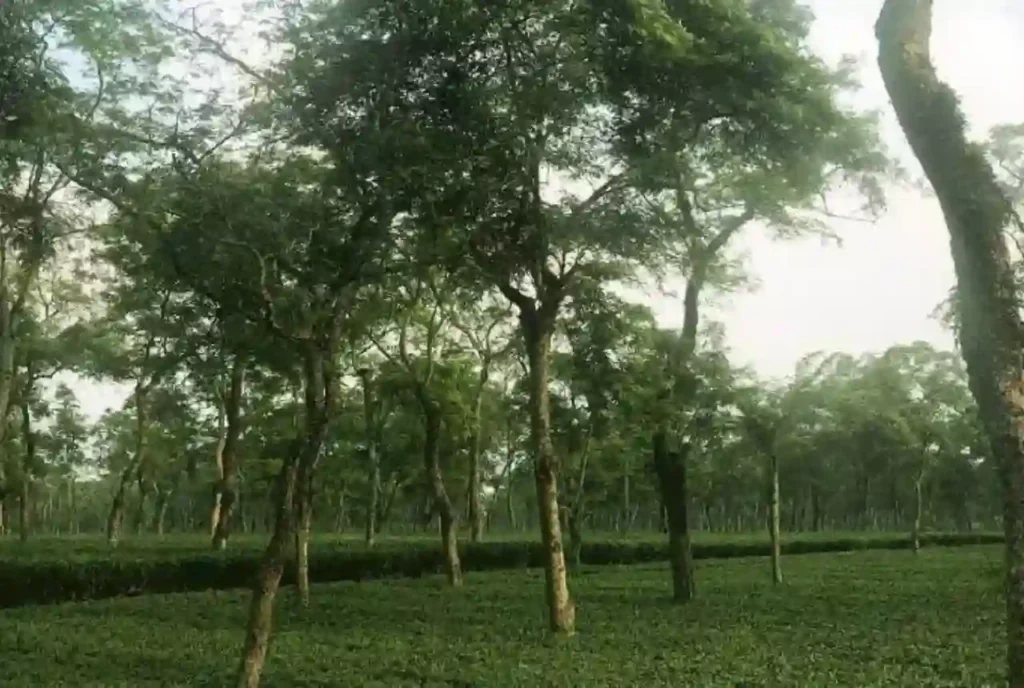
Mangalam Tea Garden, nestled in the Sibsagar district, is distinctive in its modern, planned development. This estate was started in 1973 and is famous for both Orthodox and CTC teas. The most advanced methodology of planting the tea bush here has given the reputation of this garden of yielding some of the best teas in Assam.
You can see the regular patterns of tea plants lined up like rank and file in the quiet ambiance at Mangalam. The estate is also a place that nature enthusiasts must visit since it is close to the wildlife of Assam. Tea making process, apart from gazing at the grandeur of Assam fauna, will be seen in this place while you are here.
Corramore Tea Garden
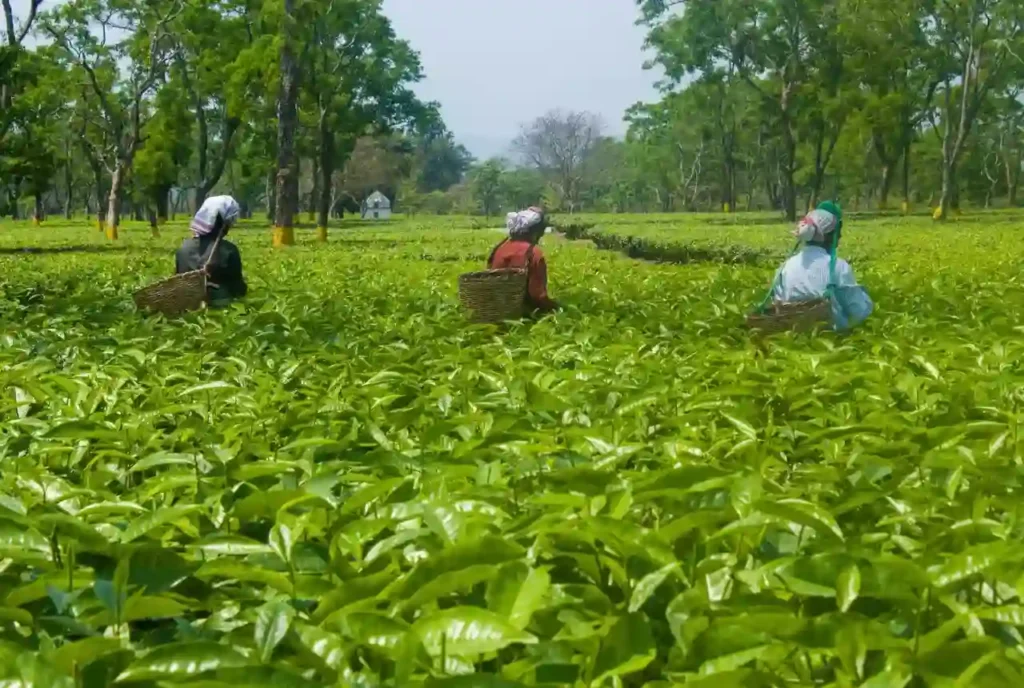
Located in the Hatigarh of Darrang district of Assam, Corramore Tea Garden provides immense scope for connecting nature with history. Established by Scottish settler Robert Logan in the 1860s, Corramore is known for record-breaking tea production as well as a beautiful landscape. With an area of 480 hectares, the estate is managed by the Williamson Tea Company, where top-tier Assam teas are produced.
A trip to Corramore Tea Garden exposes you to the history of Assam tea while offering you a serenely beautiful view of the Kaziranga mountain range. The estate also offers a glimpse into how old and new methods blend together to produce excellent tea leaves.
Ghograjan Tea Estate
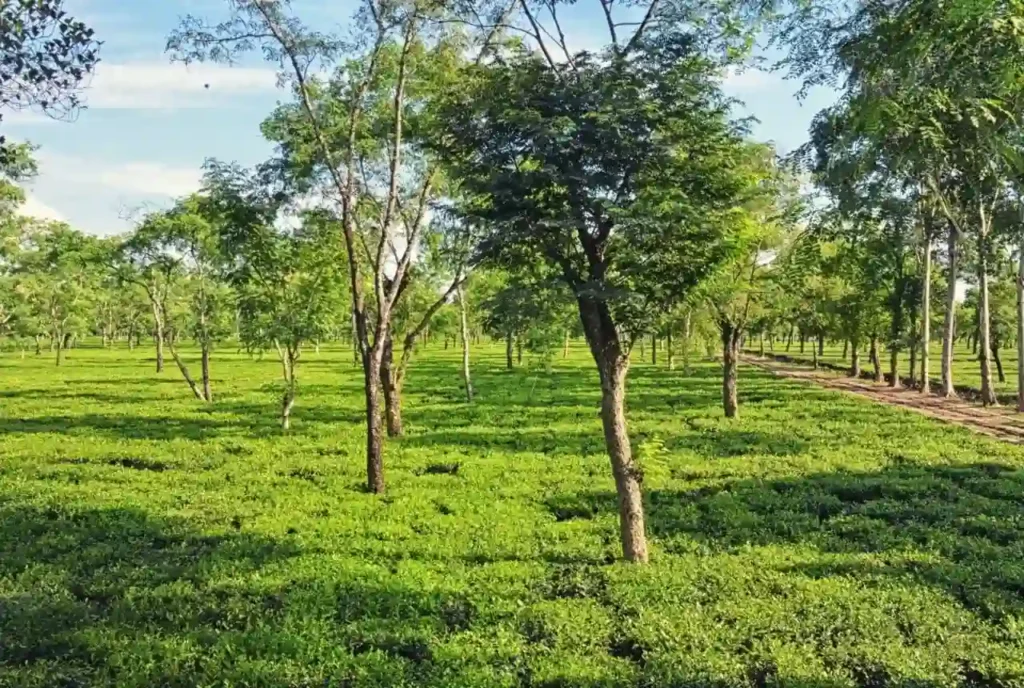
Ghograjan Tea Estate is one of those family-owned estates that boasts of a very long history dating back to the 1930s. Orthodox and CTC teas are their specialties, coming from along the banks of the River Ghagra in Dibrugarh spread over 350 acres. Today it is in the hands of the fifth generation of its original family. Most enthused among Ghograjan’s quality teas are Assam Golden Tips and Vintage Earl Grey.
You will experience firsthand the art of making tea in Assam with a visit to Ghograjan. And unlike most estates, the female force here comprises about 75 percent of the workforce hired. If you wish to see tea productions up close while contributing to a community-owned estate, this is your best bet.
Majuli Tea Estate
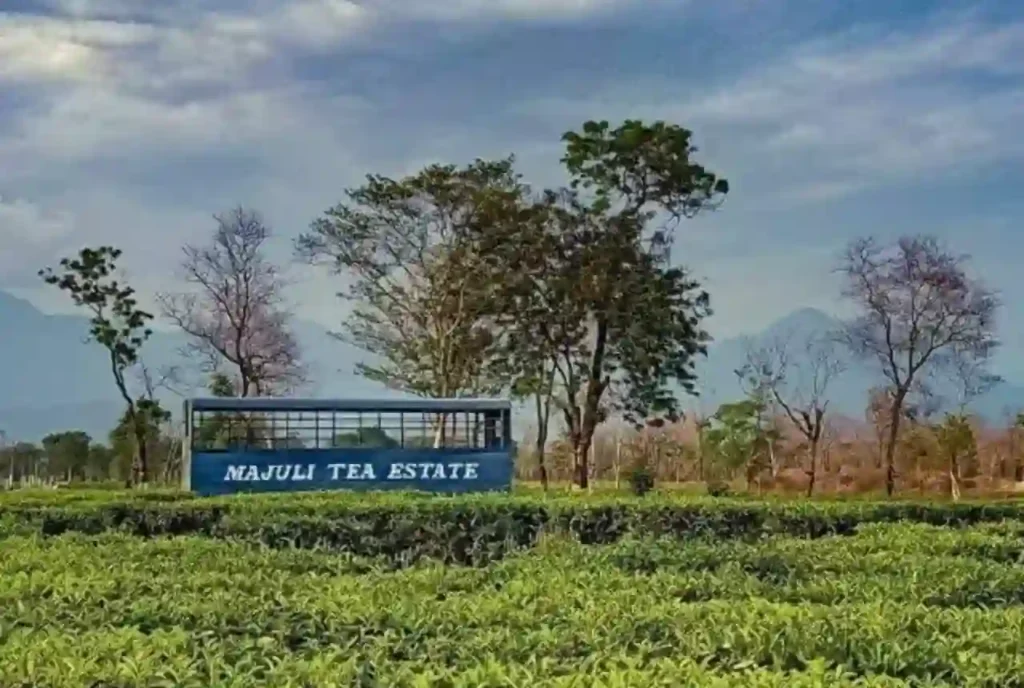
Majuli Tea Estate is a real god gift with a splendid location situated on the north bank of the Brahmaputra River and among the finest CTC teas produced in Assam. The estate gets its name from the locality surrounding the locality itself is called Majulighur; there is a very beautiful view of both the river and the landscape surrounding it for the visitors.
It’s not just tea; a visit to Majuli Tea Estate is more about sitting on the banks of the rivers, sipping rich Assam tea, but enjoying serene views. Modern agricultural practices are adopted by the estate in order to ensure the quality of its teas, which explains why it is a perfect destination for even the eco-friendly tourist.
Hathikuli Tea Estate
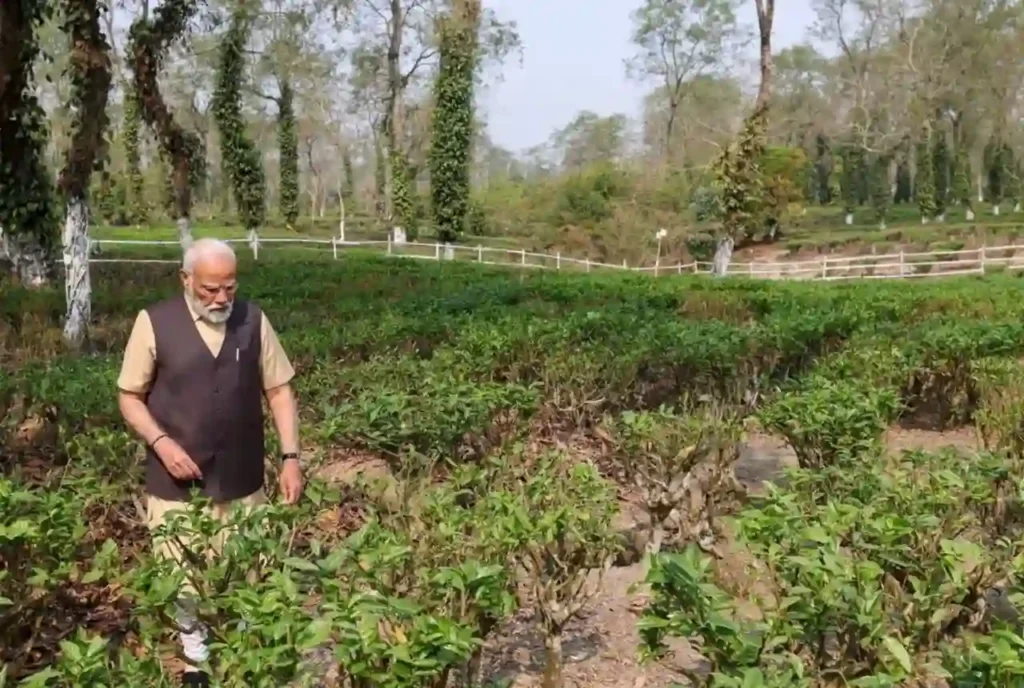
There is hardly a place more wondrously ideal for an organic farm enthusiast than at Hathikuli Tea Estate. The estate is situated between the Karbi Anglong Hills and Kaziranga National Park and is the largest integrated organic tea farm in India. As one of the TATA Group estate producers, the emphasis here is on organic tea produced with minimum, and importantly, without harmful chemical usage. Places like this will certainly be preferred by those ecotourists.
Apart from the production of organic tea, Hathikuli has some brilliant views of the surrounding Karbi Anglong Hills. It is one of the enviable stops for the tea tour of Assam because of its commitment to sustainability as well as to the conservation of the regional environment.
When is the Best Time to Visit Assam’s Tea Gardens?
A visit to Assam’s tea estates is quite planned and must, of course, time during the pre-monsoon season, March to June, and the post-monsoon period of October to November. Probably these are ideal periods when the gardens are explored in these months of pleasant weather when the tea plucking is in full swing.
However, it’s best to avoid the monsoon period between July and September, since tea production slows down during this season and much rainwater makes traveling formidable.
Conclusion
The tea gardens in Assam are much more than a tourist destination; it is a window to the soul of Assam, its culture, and history. From the grand Monabarie Estate to the eco-friendly Hathikuli, each estate is unique. It is the endeavor of the tea enthusiast as well as for those who want to see the scenic beauty of Assam that these estates or tea gardens are a must-visit.
So, why wait? Plan your Assam tea plantation tour today and immerse yourself in the world of Assam tea. The beauty, the culture, and the flavors await!


